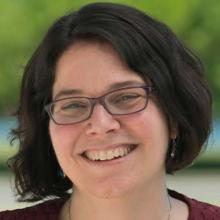Coping with COVID-19 in Community
Coping with COVID-19 in Community

Each of us is facing the challenges of the COVID-19 pandemic that impact our ability to respond effectively. Some of us are facing severe financial costs, heightened risk due to age or physical conditions, experiences of racism and other forms of discrimination, systemic inequities and injustices that make every adjustment more challenging and threatening, psychological challenges that heighten the impact of anxiety and isolation, jobs that require them to put themselves at risk, or the challenges of caring for ourselves and others alongside other demands. And some of us are facing fewer challenges in some, or all of those areas, due to privileges that we have that buffer some impact. Nonetheless, those of us with many privileges are still facing very understandable fear, dread, grief, anger, and/or a sense of being overwhelmed from the intense uncertainty and real threat and interruption from COVID-19 surrounding us. While threat can naturally lead to avoidance or pulling inward (and tending to ourselves is certainly an important part of coping in a crisis), cultivating a sense of community and connectedness is an important part of healthy responding to a global crisis. Everyone will find their own path to responding effectively, based on our context, demands, and needs; still, some principles that may be helpful for everyone to consider:
Stay connected – As we physically isolate, we can still maintain our sense of connection to friends, loved ones, communities, or strangers who share experiences with us. These challenging physical distances create opportunities for creatively connecting through virtual spaces and online communities.
- Notice whether each form of connecting is nourishing or depleting and make intentional choices related to this observation. There may be engagements that are important to us and yet are depleting – just be sure to balance those with engagement that is nourishing, or time alone to recover.
Help others (if you’re able) – One way to counter a sense of helplessness or isolation is to be of benefit to others. This could involve checking on an elderly neighbor, reaching out to a friend, donating to organizations helping people from marginalized communities in need, supporting local businesses by purchasing gift cards, or sharing funny videos on-line.
- It can be easy to feel overwhelmed by all the help that is needed – remember that we each can only do what we can do, in the amount we can do, in this moment, and at other times, we may need to pause and regroup instead.
Allow yourself (and others) to feel what you’re (and they’re) feeling – Fear, anxiety, sadness, anger, dread, and a host of other emotions are natural, understandable feelings during this time. Telling ourselves (or those around us) not to feel them doesn’t help, and can make these feelings more intense and disruptive.
- We can make room for our feelings and allow them to naturally come and go, or express care and understanding to others and allow them to express their feelings. And we can choose when we have the energy and resources to do this, and when we don’t. This often depends on the other systemic and contextual stressors we are facing as well.
- We can also intentionally engage in activities that we find soothing, comforting, or distracting, while also having compassion for how distracted or distressed we may still be. We can encourage others to do the same. Many suggestions are available here. https://adaa.org/understanding-anxiety/coronavirus-anxiety-helpful-resources
Cultivate compassion (for yourself and others) - Everyone is struggling right now. Noticing that, and feeling in connection to others in the struggle and offering kindness can help to reduce some of our distress and increase our capacity to help. And that includes not expecting ourselves or anyone else to be at full capacity right now.
Think about what’s important to you and choose actions that are consistent with that – As our routines change drastically and our structures are completely out of order, it can be helpful to take some time to remember what we care about most and the kind of people we want to be.
- You may want to take time to write about what’s important to you to clarify what matters.
- Think about taking one action a day that is consistent with what matters to you. Pay attention to what it feels like to confirm that it’s satisfying and meaningful.
- Again, pay attention to your resources and a sense of balance – you can’t do *everything* that matters to you.
Take breaks, ground yourself in this moment – Crises can make our minds very busy trying to sort through things and plan ahead and be prepared. Remember to take things one at a time and to take breaks to just breathe, stretch, walk, or be in whatever way works for you.
- Mindfulness practices can be helpful - http://mindfulwaythroughanxiety.com/exercises/ or many other free resources are available to help with this.
- Remember that tending to yourself can help you be there for others, just as being there for others can help you to settle yourself. Some people may need more alone time to be able to engage with others - pay attention to what you need, not what someone else (including us!) says you should be doing.
Practice social distancing - This keeps everyone around you safer and supports health care professionals and workers who have to go to work to keep our systems running.













